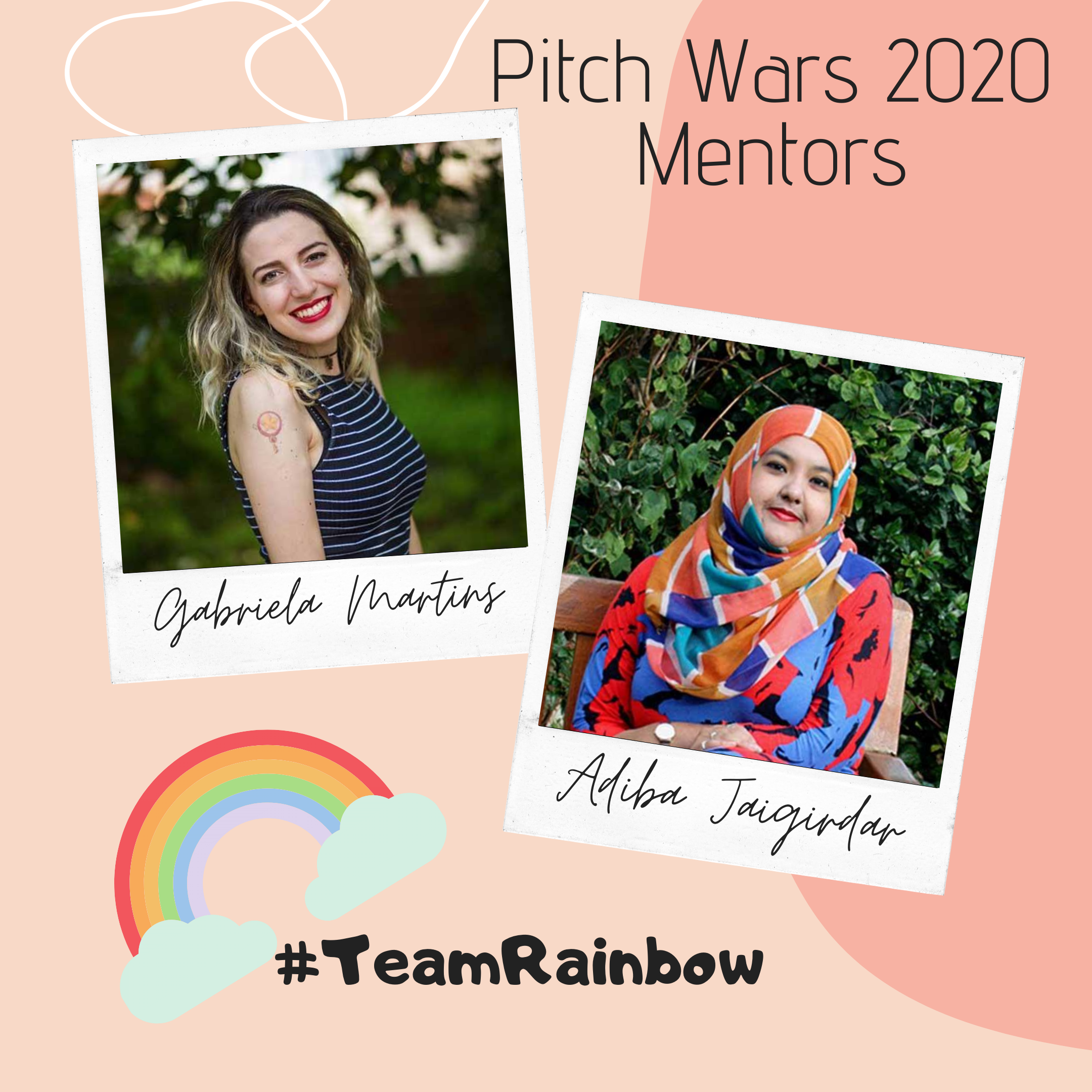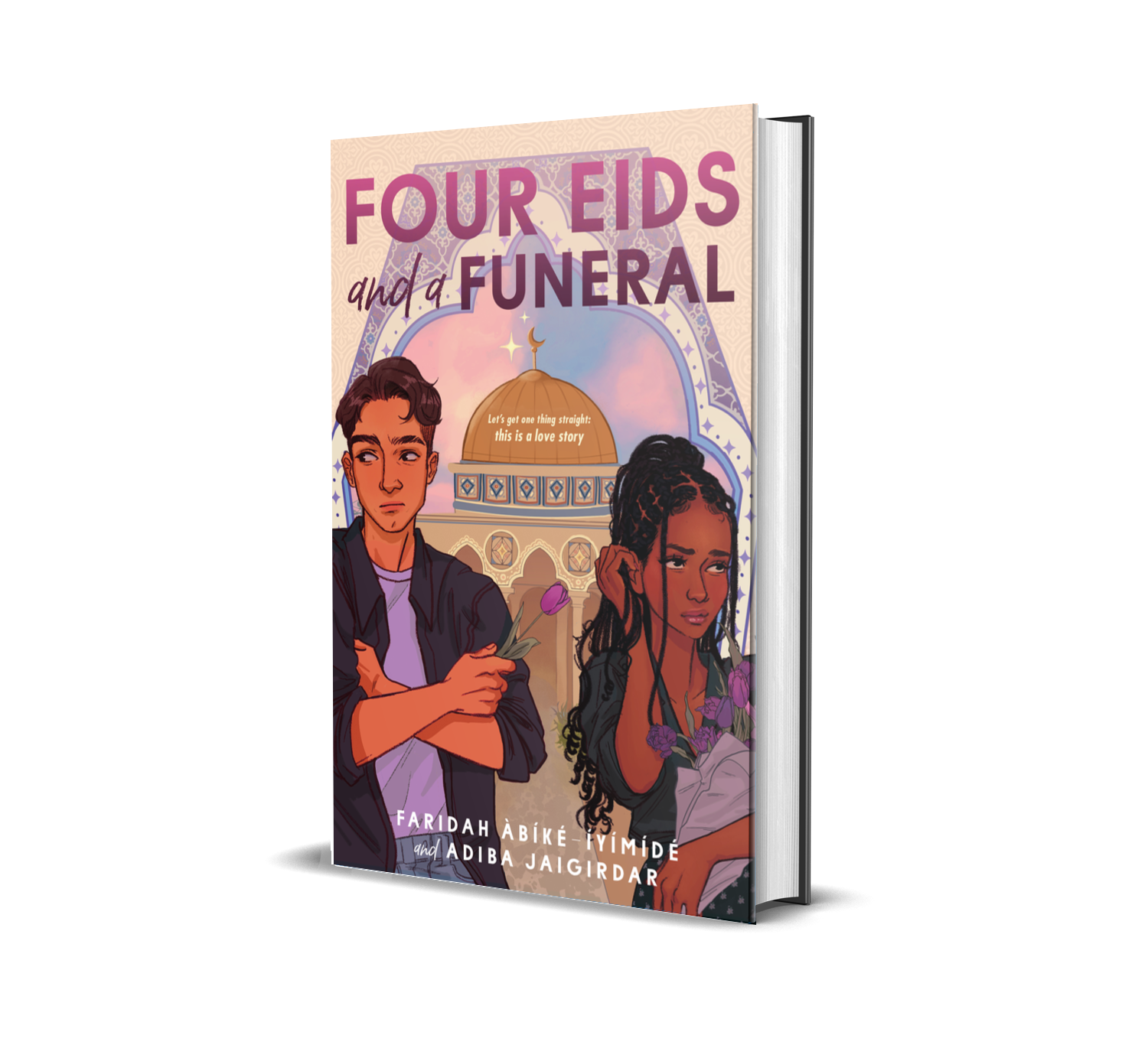My sophomore novel, Hani and Ishu’s Guide to Fake Dating, comes out in just a few weeks. And if there’s one thing I can truthfully say, it’s that I...am not excited about its release.
Don’t get me wrong: this does not mean I don’t love this book. It doesn’t mean that I didn’t work extremely hard on it. It doesn’t mean that I don’t appreciate everybody else who has worked hard on this book, or everybody who is excited about it.
All it means is that no matter how hard I try, I can barely conjure up a minuscule level of excitement about the fact that this book is going to be out in the world soon. And I had no idea why.
Except a few weeks ago, Alexa Donne, YouTuber and author of several books, released a video titled, “When Publishing Makes You Cry.” And since I love learning all the hard truths about publishing, obviously I watched it immediately. And when Alexa got to the part about second book depression, this was me:
Alt text: meme of Leonardo Dicaprio pointing at TV
Truthfully, I really didn’t expect to feel like this. When it comes to second books, I’d always heard authors talk about the “second-book slump.” And all my author friends were experiencing it. Where the writing of a second book felt like a mountain they had to climb, in a way the first book never did.
My second book never felt like that. I wrote it in a month, and it was the most enjoyable writing experience I ever had. So, I thought, I’m doing good! I’m out of the woods!
Apparently not.
When my debut, The Henna Wars, was about to release, I remember feeling a lot of things. Probably to the point where I was very overwhelmed. I used to have publishing-related nightmares all the time. I felt overwhelmed and overworked. I was on deadline for two books, we were at the start of a global pandemic, and I was fasting, like, 17 hours a day because it was Ramadan. Still, I felt inexplicably happy. Literally nobody and nothing could have taken away that joy. I am convinced somebody could have given me the worst news in the world (and isn’t a global pandemic pretty much the worst news in the world?) and it would have just blown past me like it was nothing. Because my book was coming out, and I was finally going to be an author with a capital A.
The experience for Hani and Ishu? Literally could not be any more different. I feel so strangely disconnected from everything surrounding this book. Like I wrote a book back in 2019, and now another book is coming out that I have had absolutely no part in. It kind of sucks feeling so apathetic about something that you actually love with your entire heart and soul.
I couldn’t tell you exactly why I feel like this, but I can hazard a guess.
Part of it is that I already know what “releasing a book” feels like. I know the process. I know the highs and I know the lows. There’s no excitement for the unknown that is spurring me forward like with my debut. And as I write this, I know that none of this knowledge that my mind and body thinks it has is actually true. I know, rationally, that every book is different, and I don’t know what the outcome of my second book is going to be. I don’t know if it will be as successful as The Henna Wars, I don’t know if people will resonate with it in the same way. I don’t know if it will earn out. I don’t know if in a year, I will get tagged in tweets and Instagram posts every day about Hani and Ishu like I do with The Henna Wars. Truthfully, I actually don’t know the highs and lows of this book. I don’t know anything. But this rational knowledge doesn’t help how I feel. At all.
I think a part of it is also this pandemic. I released The Henna Wars in the US in May 2020, and in the UK in January 2021. Six months apart, but still in the worst depths of the pandemic, during total lockdown. And obviously me and my team, and literally everybody else in the world has tried to make the best out of a pretty awful situation. That doesn’t mean it doesn’t kind of suck, and having a third book release during a pandemic doesn’t feel fun.
And the last reason is personal. Like most people, I have lost people since this pandemic started. And for the last 6 months, my only living grandparent has been in treatment. We recently discovered that she is terminally ill. It’s never a good time to have your grandmother who played a big part in raising you, and is a big source of connection to your culture be terminally ill. But it’s especially not a good time during a global pandemic, when she lives on the other side of the world.
So even though I love Hani and Ishu’s Guide to Fake Dating, and I’m so grateful that I get to publish it, and to everybody who has worked on it and everybody who is excited for it, I am not excited. At all. And I wish I was.
I’m not writing this to be like, “hey, I’m depressed, let’s cry about it,” but because there have been so many unexpected things during this publishing journey. One of them being how awful I felt right after my debut. These are the not-so-pretty things people don’t often talk about, but when they do, it does help you prepare mentally and emotionally for it. So even if you are hit with post-debut depression or second book depression, maybe you can handle it a little better.
To end on a less depressing note:
Since I have been feeling like this, and not wanting to feel like this, I’ve asked myself what can I do to find joy at a time when it’s very difficult to find joy? I don’t have all the answers, but I do have my answers.
Hani and Ishu’s Guide to (real) Dating, my fake advice column actually makes me feel very excited and happy. I didn’t know if anybody would be interested in participating, but I did know it would be fun to reach out to a few of my author friends and ask them to participate. Reading their hilarious letters and channeling Hani and Ishu’s voice once more to write their responses has been one of my favourite things over the last few months. And it also makes me really happy to hear that readers have enjoyed guessing who the letters are from.
My virtual launch, which is still in the planning process, but will be coming soon. For Bengalis, community is really important. For example, during this second lockdown ramadan, almost every single week one of the Bengali families in Dublin has dropped off iftar for us to break our fast. Throwing iftar parties or giving money for family and friends to buy iftar is very common in our culture (and probably across many, if not all Muslim cultures). So, when I was finding it difficult to find joy in my book release, I thought about reaching out to my South Asian community. I called out for South Asian content creators and so many of them reached out. And working with these content creators to plan my launch events have definitely been a source of joy for me.
And lastly, seeing anybody get excited about Hani and Ishu makes me happy, even if the joy is a little fleeting. But every Instagram post, tweet, blog post...all of it. Knowing that even though I’m not excited for whatever reason, there are people out there who are...that’s a really weird feeling, but in a good way.
So, if you’re an author with a book coming out, and you don’t feel excited about it, that’s okay. You’re certainly not alone. Both me and Alexa Donne have been there, confirmed. But I hope that you still manage to find some joy, because you worked hard on a book and you deserve to be happy about it.







